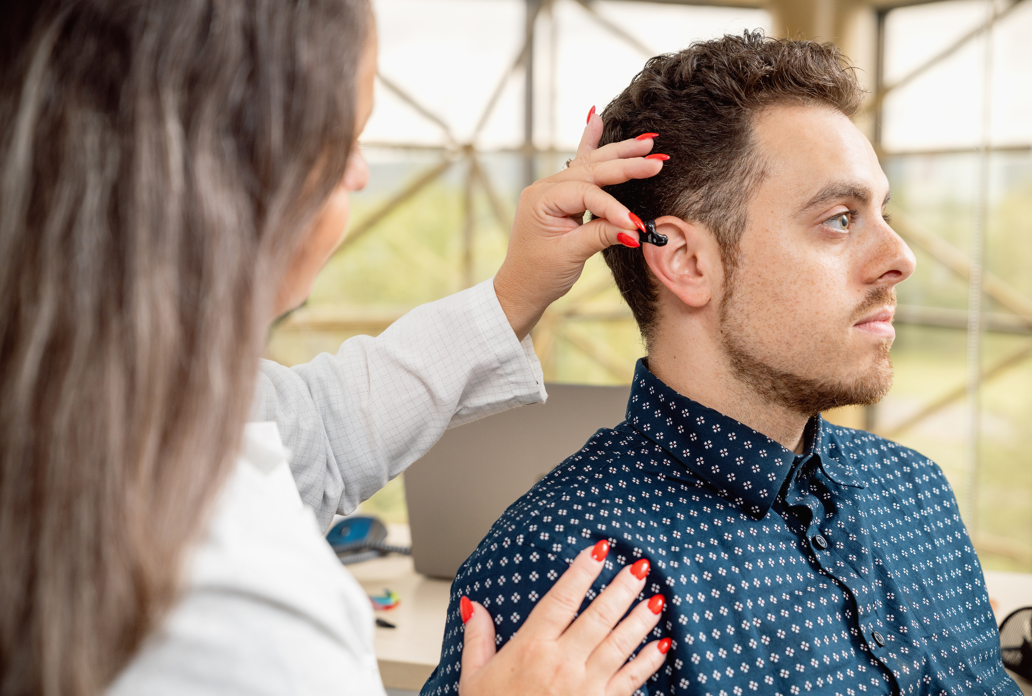So, you have decided that it’s time to find a solution for your hearing loss. Maybe you noticed that you are asking others to repeat things more often, or family members have encouraged you to get your hearing tested. As you begin your research into treatment options, you will discover that while hearing aids may be covered by a Medicare Advantage plan or available free to Veterans, they are not typically covered by health insurance or traditional Medicare, and prices for hearing aids can vary greatly.
Let’s discuss price and what contributes to the cost. The total price of hearing aid is determined by adding up the basic components:
Hearing aids are medical devices that are continuously being innovated to provide the best benefit to those with various levels of hearing loss. This requires extensive research and development as well as sophisticated manufacturing equipment. Hearing aids are regulated in the United States by the Food and Drug Administration (FDA) and require manufacturing teams to ensure regulatory conditions are met and the device is appropriately registered with the FDA. All these factors require significant investment and personnel that influence the manufacturing cost of the devices.
 Another component that drives the difference in pricing is the professional services that are included with the hearing aids. We recommend that your first step be to find a licensed hearing care professional and have a complete hearing test to determine the nature and severity of your hearing loss. Not all hearing loss is the same. It can vary from mild to moderate or severe to profound and this will determine the type of device you will need. The hearing care professional will also ask about your lifestyle, places you have the most difficulty hearing in (like noisy restaurants or watching the TV) and how important the cosmetics (color, size, and placement) of the hearing aids are to you. These answers and your degree of hearing loss will drive the level of technology and the style of the devices that would work best for you. For those with active lifestyles, features like directional microphones, noise reduction, connectivity to phones and music, and possibly apps and other accessories may be necessary. These features are typically found in products with the highest level technology and may lead to higher costs. If cosmetics are important for you, your options may be narrowed down to the smaller in-the-ear or completely-in-canal devices that can be found at various price-points.
Another component that drives the difference in pricing is the professional services that are included with the hearing aids. We recommend that your first step be to find a licensed hearing care professional and have a complete hearing test to determine the nature and severity of your hearing loss. Not all hearing loss is the same. It can vary from mild to moderate or severe to profound and this will determine the type of device you will need. The hearing care professional will also ask about your lifestyle, places you have the most difficulty hearing in (like noisy restaurants or watching the TV) and how important the cosmetics (color, size, and placement) of the hearing aids are to you. These answers and your degree of hearing loss will drive the level of technology and the style of the devices that would work best for you. For those with active lifestyles, features like directional microphones, noise reduction, connectivity to phones and music, and possibly apps and other accessories may be necessary. These features are typically found in products with the highest level technology and may lead to higher costs. If cosmetics are important for you, your options may be narrowed down to the smaller in-the-ear or completely-in-canal devices that can be found at various price-points.
Other drivers of price are warranty on the product, the services for testing and fitting of the devices, and any included follow up visits. Most hearing aids have at least a one year warranty, but many can also be found with a standard two- or three-year warranty. This warranty generally covers any repairs that need to be made and is provided by the manufacturer. Office visits are provided by the hearing care professional and may be included in the initial cost of your hearing devices or offered separately as single visits or service plans lasting two to three years.
Health insurance, and specifically traditional Medicare, usually does not cover hearing aids. Under original Medicare, hearing, dental and vision have been statutorily excluded since the program began. If you are a Veteran, you may qualify for free hearing aids. Check your coverage as some private health insurance policies provide a benefit towards a hearing test or hearing aids and many Medicare Advantage plans provide a wide variety of coverage options that include dental, vision and hearing aids. You can find more information for financial assistance here.
In 2022, the FDA created a new category of over-the-counter (OTC) hearing aids available to adults 18 and over who have mild to moderate hearing loss. This new category allows hearing aids to be sold online or through retailers without the intervention of a hearing care professional. Without professional services, OTC devices are often found at lower price points. However, there are certain cautions you need to take before purchasing a device without the help of a professional, such as:
To learn more about OTC products and how to keep your hearing health and finances safe, check out our OTC info webpage. To get a consultation from a professional near you, visit our hearing care professional finder here. Your hearing is essential so hear well and stay vital!